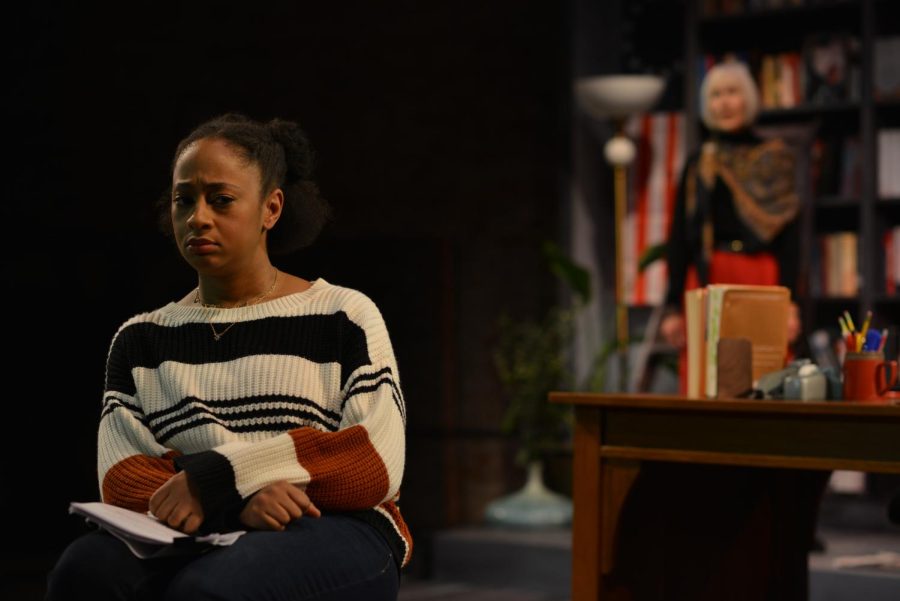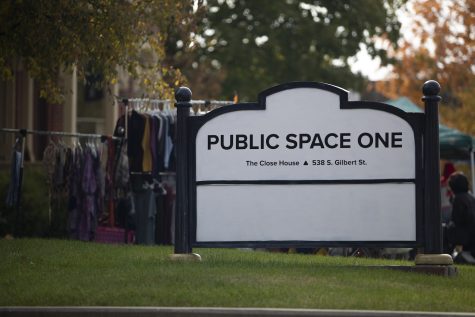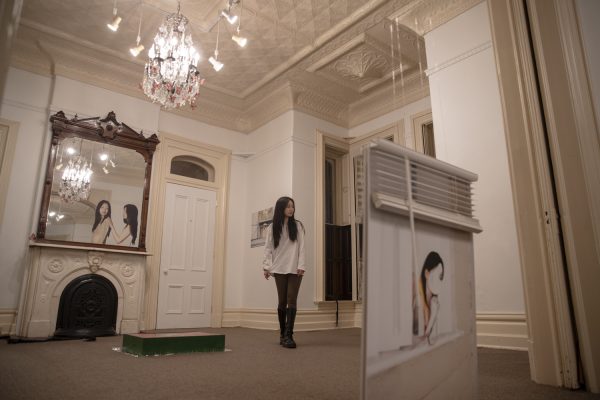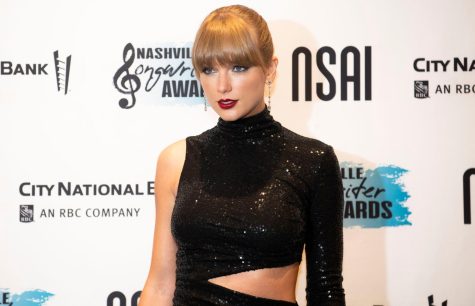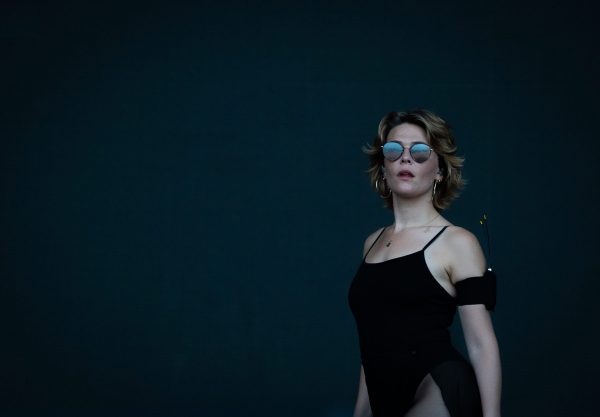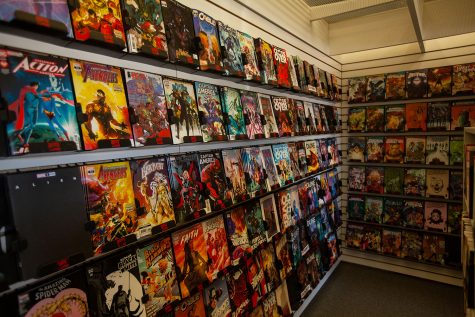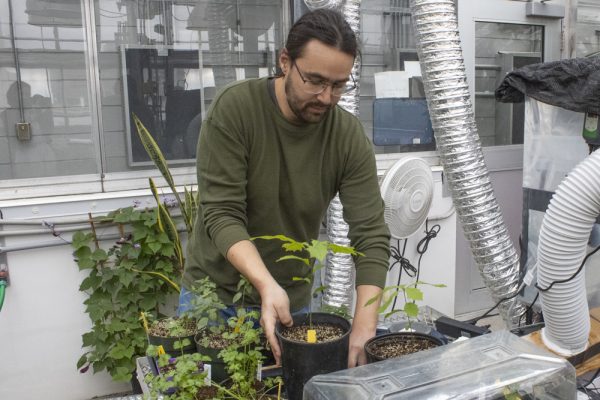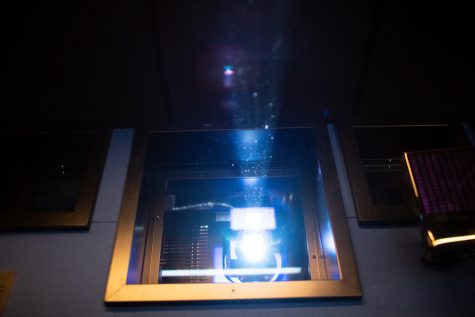Riverside Theatre’s ‘The Niceties’ discusses issues of power and race in education
Riverside Theatre’s latest production, ‘The Niceties,’ tells the story of a professor and a student ultimately divided by power, and subsequently highlighting oppressive flaws within the American education system.
March 12, 2022
Amid the bill that passed in Iowa in 2021 banning critical race theory in educational institutions, conversations regarding history and how it is told have been prominent in various Iowan and national communities — including the world of theater.
Riverside Theatre’s latest production, titled The Niceties, tackles this complex issue among many others, ultimately exploring power struggles relating to race in an academic setting. Written by playwright Eleanor Burgess, The Niceties is a two-woman and two-act play, all taking place within the single setting of a professor’s office.
The Riverside Theatre was busy opening night, with attendees gathering in the space, nursing their various beverages as they prepared for the show to start. The buzz of conversation came to a halt as the lights dimmed and the performance began.
The Niceties follows the story of two women in the same room on two separate occasions, with their interactions highlighting multiple prominent issues within the American education system. Crystal Marie Stewart, a graduate of the MFA acting program at the University of Iowa, performed as the character Zoe Reed, a Black student attending an unspecified East coast university.
Throughout the play, Reed highlights one of the most prominent issues in education, primarily in the collegiate setting — racism. Whether that be through microaggressive statements made by people in power, or a lack of diversity regarding course material, Reed brings light to a prominent issue with visceral consequences.
Stewart said that while she doesn’t necessarily agree with everything that Reed says or does within the play, she does see similarities between their stories. While Stewart and Reed may have chosen different paths in terms of addressing systemic inequality in the education system, Stewart said that the issues are real.
“I do admire that Zoe does not allow herself to be taken advantage of, because I think that I swallowed a lot of things in my academic career,” Stewart said. “Looking back, I feel bad that I felt I had to deal with [that discrimination].”
Jody Hovland, former artistic director of Riverside Theatre, played the production’s only other character, Janine Bosko. Bosko is a white professor at the university that Reed attends, and frequently counters Reed’s beliefs by rebutting her statements.
RELATED: Willow Creek Theatre’s production ‘The Kornilov Affair’ intersects comedy and history
Throughout the first act of the performance, it was clear that the imbalance of power between the two characters would be a focal point. The relationship between Reed and Bosko started amiable, but as their conversations turned to address more serious topics, the difference in power became prominent.
“The Niceties is a play about power — about recognizing it, wanting it, being threatened by it, holding on to it, refusing to share it, not acknowledging that others have it, and this power struggle occurs over the issue of race, which is very timely in our conversation right now,” Hovland said.
The power imbalance between the two characters is expressed in both dialogue and their subtle actions throughout the performance. Staging and the positioning of the actresses played a large role in their perceived dominance in certain scenes, as well as their subtle body language executed with precision by the performers.
Curtis M. Jackson, the director of the performance, said that he enjoyed the challenge of working with this two-person play. He said that while the story does not directly act as a response to current events due to the fact that the play takes place in 2016, it is still a contemporary play that holds relevant discussions.
“I’m a huge fan of both of these characters being right and being wrong, sometimes at the same time,” Jackson said. “I’m a huge fan of what they’re actually discussing, which again, has nothing to do with what we’ve been currently going through.”



